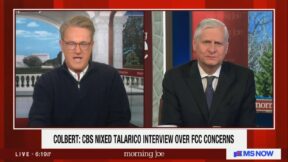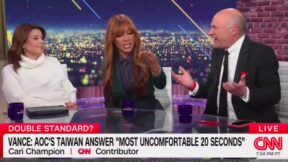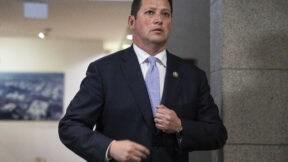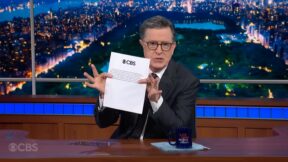Coca-Cola’s Vice President for Human Rights Declines to Condemn Chinese Genocide of Uyghurs
During a hearing on Tuesday with the bipartisan Congressional-Executive Commission on China, Coca-Cola’s global vice-president for human rights, when pressed, declined to condemn China’s genocide of Uyghur Muslims.
Questioning Paul Lalli, Senator Tom Cotton (R-AR) mentioned the global corporation’s objections to Georgia’s election reform law, which was enacted in March, and took them to task for not condemning China’s genocide of the Uyghurs nor reconsidering its sponsorship of the 2022 Winter Olympics, which are scheduled to be held in Beijing.
“Do you believe that the Chinese Communist Party is committing genocide against the Uyghur people,” asked Cotton.
Lalli replied, “We’re aware of the reports of the State Department on this issue as well as other departments of the U.S. government. We respect those reports. They continue to inform our program as do reports from other civil society.”
Cotton chided Lalli and representatives from Airbnb, Intel, Procter & Gamble, and Visa for refusing “to say a single word by all appearances that will cost you one bit of market share inside of mainland China.”
Coca-Cola: We stand up for what is right across the world.
Also Coca-Cola: We will not condemn the Chinese Communist Party for committing genocide, and we will support the Winter Olympics in Beijing. pic.twitter.com/9C56MJJYe8
— Tom Cotton (@SenTomCotton) July 27, 2021
Cotton ridiculed Lalli for Coca-Cola speaking out against that Georgia law yet being silent on the genocide in Xinjiang ahead of China scheduled to host next year’s Olympics, or as Cotton put it, the “Genocide Olympics.”
“Can you tell me why Coca-Cola doesn’t have a say in whether it sponsors the Genocide Olympics next year but it does have a say in how the state of Georgia runs its election laws,” asked Cotton.
Lalli said his company “does not have a say” in which city hosts the Olympics “nor whether an Olympics is suspended or postponed or relocated.”
Cotton refuted that the company “can make a statement.”
“The CEO can saddle the same moral high horse that he got on when Georgia passed its election law and write a letter to the [International Olympic Committee] and ask them to. Anybody can do that,” he said. “If he’s an American citizen, that’s his right under our Constitution.”
Lalli responded that Coca-Cola is focused on U.S. policy issues but is “clear in our respect for human rights globally.”
Cotton repeated his question of why Coca-Cola won’t reconsider its sponsorship for the “Genocide Olympics” and “what’s the difference” between that and condemning Georgia’s election law.
“Our role as a sponsor is to support and follow the athletes,” replied Lalli.
Cotton tore into Coca-Cola, accusing it of “spending millions of dollars to sponsor the Genocide Olympics yet” it “won’t opine on any matter about it yet” it “will stick [its] nose in the Georgia legislature’s election reform laws. Can you explain to me the contrast?”
Lalli reiterated that Coca-Cola does “not make decisions” on where the Olympics are and that the company’s goal is to support the athletes – prompting Cotton to interject “I’ve heard your talking points and I’m tired of hearing them” and asked again his question.
Lalli said that Georgia is Coca-Cola’s “home. It’s where many of our employees live and work and we are most engaged on public policy issues here in the U.S.” – causing Cotton to interrupt and say, “I think the answer is you’re afraid of the Chinese Communist Party. You’re afraid of what they will do to your company if you say a single word like, for instance, saying that both the Biden and the Trump administration are correct when they say that China is committing a genocide against its own people.”
Watch the exchange above.
New: The Mediaite One-Sheet "Newsletter of Newsletters"
Your daily summary and analysis of what the many, many media newsletters are saying and reporting. Subscribe now!






Comments
↓ Scroll down for comments ↓